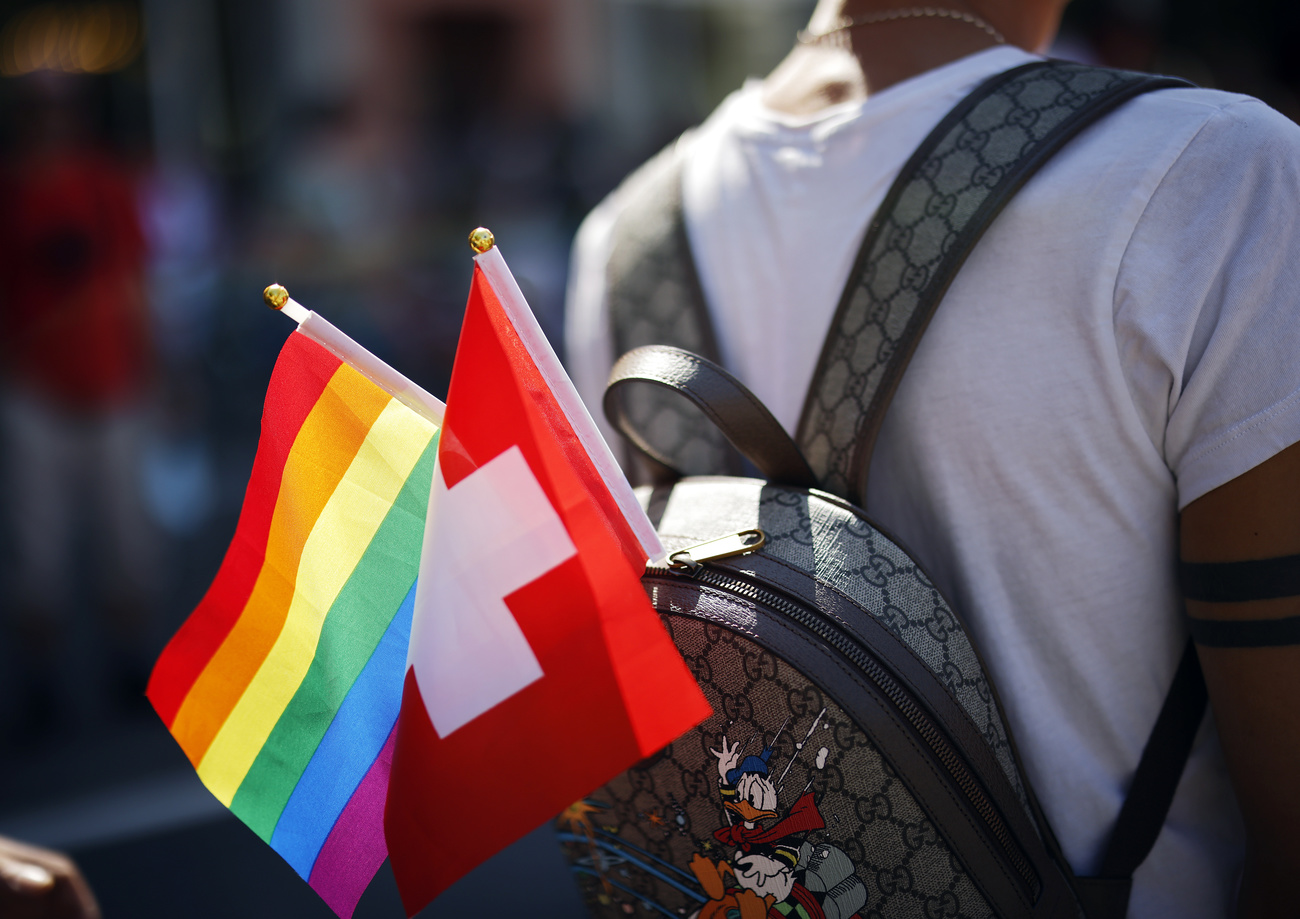
Swiss abroad show overwhelming support for marriage for all

With almost 72% of “yes” votes, the Swiss abroad have voted for marriage for same-sex couples even more widely than their compatriots at home. Without reaching a majority, the 99% initiative achieved a surprisingly high score among those living overseas.
The “yes” vote was clear and overwhelming: more than 64% of the Swiss electorate voted the for marriage for all initiative on Sunday. After decades of struggle, same-sex couples now have the right to marry and start a family in Switzerland.

More
‘Marriage for all’ wins thumping approval of Swiss voters
Looking at the vote of expatriate citizens, the plebiscite is even clearer: the right for same-sex couples to marry was approved in all the 12 districts of the Swiss abroad for which statistics are available, with scores in most cases exceeding 70%.
This result does not surprise political scientist Lukas Golder, co-director of the gfs.bern Institute. Many Swiss abroad live, work or travel in large conurbations, he notes. “They have had the opportunity to experience greater acceptance and visibility [of same-sex couples] than in Switzerland.”
“Conservative arguments have been very much downplayed, because in other developed countries these unions are even more normal”, he adds.
More
Heated debate over wealth gaps abroad
The other text put to the vote on Sunday, dubbed the “99% initiative”, proposed to introduce a tax on gains from dividends, shares and rents. Nearly two-thirds of the electorate (64.9%) and all the cantons rejected this idea, the latest in a series of attempts by the left to introduce greater tax equity.
But part of the Swiss diaspora, did approve the text. It received a “surprising” yes rate of 48.6%.
The 50% mark was even surpassed by expatriates registered in the cantons of Fribourg, Geneva, Basel-City and Lucerne.
According to Lukas Golder, one explanation may lie in the fact that the debate on wealth inequality is bigger overseas. In other countries including the United States and the United Kingdom the gap between rich and poor is a more serious problem than in Switzerland. This may have given the Swiss abroad “another perspective”, says the political scientist.
The Federal Council had argued in favour of rejecting the text on the basis that the distribution of income was balanced in Switzerland. These arguments carried a lot of weight, according to Lukas Golder.
More
The co-director of the gfs.bern institute also notes that a large proportion of Swiss citizens were sensitive to the idea that the reform could penalize the Swiss economy and SMEs.
“This argument almost always works in Switzerland”, but it is not as strong with people living abroad, underlines Lukas Golder. The Swiss abroad would be more motivated by their individual interests when voting. In this case, the expatriate population supported the text because they would not have been directly affected by its application anyway, the specialist analyses.

In compliance with the JTI standards
More: SWI swissinfo.ch certified by the Journalism Trust Initiative




























You can find an overview of ongoing debates with our journalists here . Please join us!
If you want to start a conversation about a topic raised in this article or want to report factual errors, email us at english@swissinfo.ch.